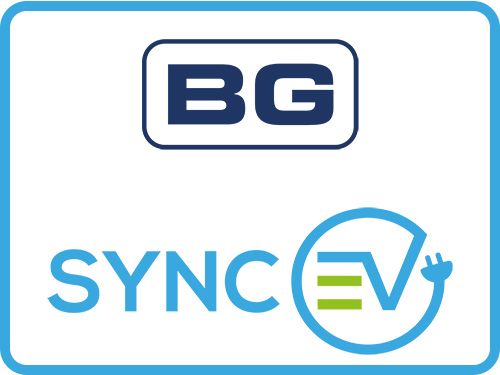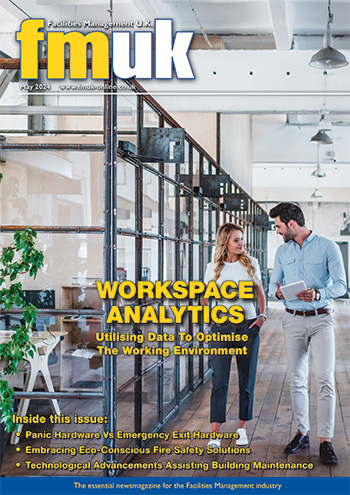The Role Of Tech In Meeting Changing Demands And Creating Better Workplace Food Experiences
 By Toby Venus, Commercial Director, Selecta UK & Ireland.
By Toby Venus, Commercial Director, Selecta UK & Ireland.
Food has emerged as a new incentive to encourage workers back to the office and just as businesses are adapting to hybrid working, so too are the facilities managers that support the day-to-day running of organisations.
Companies are beginning to realise how important good food is in attracting talent and creating healthy workplaces that look after their employees. A recent study revealed two-thirds of respondents believe an organisation which prioritises their health and wellbeing would make them more likely to stay in their current role, so healthy food and beverage provisions should not be overlooked.
Not only this, but new technologies are quickly changing the workplace facilities environment, with digital transformation leading the way for enhanced customer service, drastically reduced operations costs and streamlined processes.
In this article, Toby Venus discusses the benefits of the latest workplace catering technology and how it can help facilities managers create an exceptional business environment, which will also attract and retain top talent.
The Challenges Facing Workplaces
The pandemic has been a driver for change, pushing facilities managers to think differently about restrictions and challenges. As a result, the demand and application of digital solutions have been fast-tracked.
Around 82 percent of UK employees admit to not always taking their lunch breaks, with frantic schedules frequently given as the reason. For businesses, the test isn't just to build a culture that encourages employees to take their lunch breaks. It's also to help their teams meet their nutritional needs in ways that support their post-COVID schedules and desired ways of working.
To boost productivity at work a lunch break is vital. Certain foods can increase brain function, concentration and provide a boost to energy levels throughout the day. While you can’t impose a healthy eating regime, you can promote a healthier diet while in the workplace by educating staff.
This is where facilities managers can play a crucial role in sourcing workplace catering technology to assist businesses with better dietary options.
Innovative Solutions
For workplaces that struggle to deliver on-site food solutions, like offices with restricted food preparation facilities, FoodTec is one of the answers to this problem. From grabbing a sandwich between meetings to snapping up a quick coffee before a big presentation, it permits staff to refuel when they’re in a hurry.
Modern systems, like MicroMarkets, enable businesses to deliver great food experiences, using the freshest food and are growing in popularity. Organisations can provide delicious and nutritionally balanced meals to even their busiest employees.
MicroMarkets are compact, self-serve stores providing fresh, healthy food and drink 24/7. Automated and requiring no staff, they rose in popularity as they could easily be made COVID-compliant for businesses unable to offer remote solutions, especially in industries with shift-pattern working.
As production facilities expand to accommodate this growing demand for in-house catering facilities, there is more potential for food safety accidents to occur due to contamination or mislabelling. These can have widespread and adverse effects, both on employee health, the reputation of a supplier and on your own company.
However, with the latest innovations in technology, facilities managers can mitigate the chances of this happening. By working with suppliers who use smart and automated food safety strategies to lessen the chances of contamination, human error, and production delays.
Despite being self-serve, solutions like MicroMarkets are very secure. They can have tracking sensors in place, which recognize when products are taken and monitor shopper movement, whilst protecting their privacy. There are options to also add standard surveillance cameras to prevent theft or vandalism.
Tech To The Rescue
Prioritising safety and efficiency, we believe distance selection technology, and smart fridges will become commonplace in our new flexible working world. For example, distance selection coffee machines are designed to give employees touch-free access to their favourite hot beverages.
The intuitive design replicates a traditional coffee machine, replacing mechanical pushbuttons with hygienic, touch-free selection technology. Employees can select their drinks by hovering their fingers over the screen – up to 2 centimetres away – so, it’s completely contact-free.
Distance selection technology means staff continue enjoying delicious drinks with the peace of mind of staying safe against the spread of viruses and bacteria. Some businesses have also use intelligent inventory systems that monitors product control, precise inventory and transactional algorithms.
Advanced intelligent inventory systems can be used with sales stats to adapt and improve your food offerings. They can also be used to engage consumers by delivering real-time offers and if deployed at checkout counters, can encourage staff to subscribe to potential loyalty programmes. This makes them aware of exclusive discounts before they pay for their items.
Reduced Waste And Increased Efficiency
With new regulations and protocols entering the industry, digital solutions can standardise common food safety procedures for facilities managers.
Everyday compliance tasks, like product logging, and temperature checks are both tedious and time-consuming. However, advanced food safety systems can automate certain tasks or provide digital management tools which monitor food compliance tasks from a mobile or computer application.
Integrated approaches to workplace strategies, facilities management, and technology all hold promise and FMs can gain useful insights by examining internal data. For example, data is analysed using telemetry in MicroMarkets, which identifies what food is being purchased. This can be used to gather important information about customer/employee behaviour, purchasing and eating habits and trends.
FMs not only get to know their employees’ food and drink choices better, but this information assists with other tasks like purchasing decisions, menu creation and which product lines should be increased or discontinued.
Companies can also boost the implementation of evolving technologies through controlled pilots. If successful, these provide the business case for scaling and introducing a more data-focused approach across other areas for facilities managers, all driven by Foodtec.
Empowering Businesses
It’s not just employees who profit from food technology. Presenting an adaptable, speedy, and efficient process in the office also empowers businesses. From combatting staff shortages to decreasing operational costs through self-service options, the wider business benefits can be felt at all levels.
It also seems obvious to assume better connections are part and parcel of establishing a productive, happier workforce. However, there is also legitimate research to support this.
A study on team building in cafeterias showed significant positive correlations between eating together and team performance and cooperative behaviour was twice as high among team members who ate together than among those who don’t.
Happier employees don’t just boost company culture, they have a positive effect on an organisation’s bottom line too. There’s a strong link between a satisfied workforce and financial performance. Firms rated higher by their staff for overall satisfaction accomplish greater profitability compared to those with lower staff ratings.
Producing appetising and fresh dishes, which are easily accessible prompts workers to eat more on-site, rather than heading out to grab lunch and snacks from other eateries. This offers teams a chance to build stronger relationships with colleagues.
Click the article to enlarge it.


























































